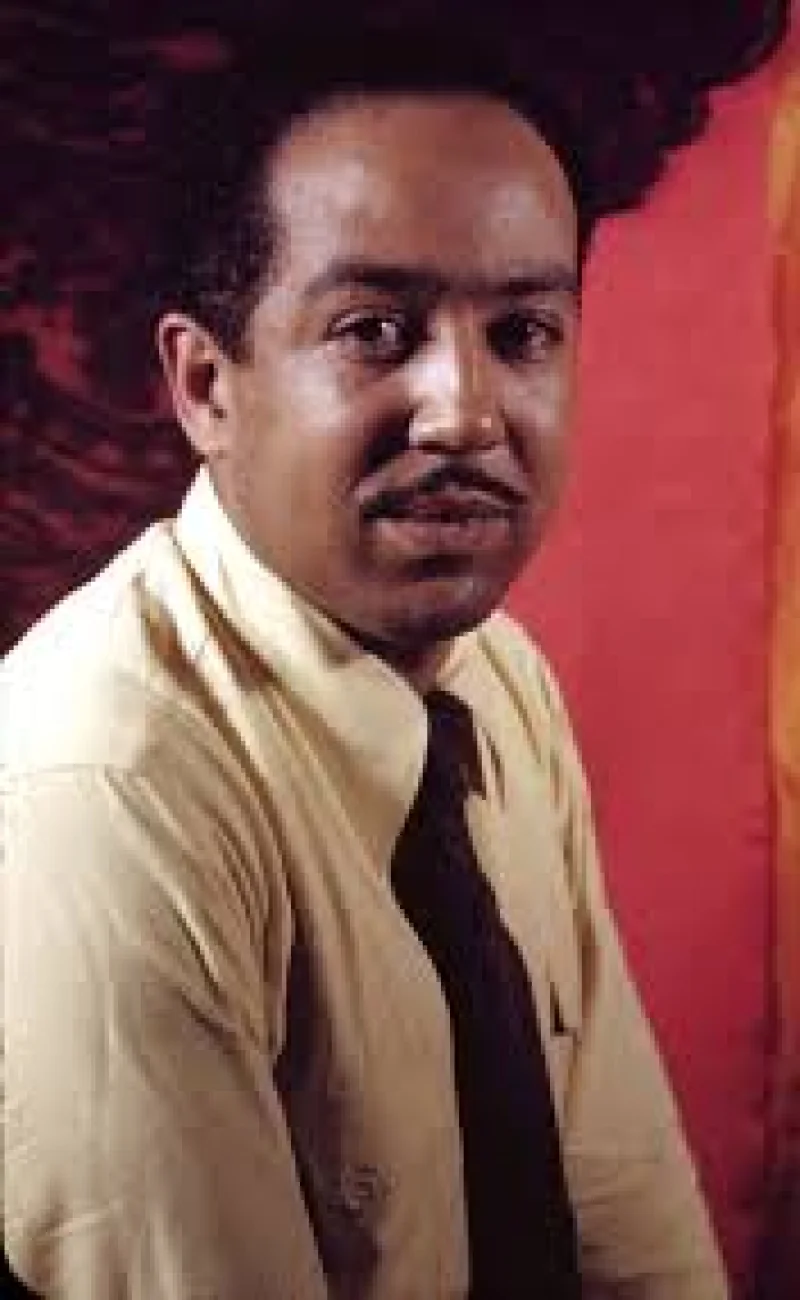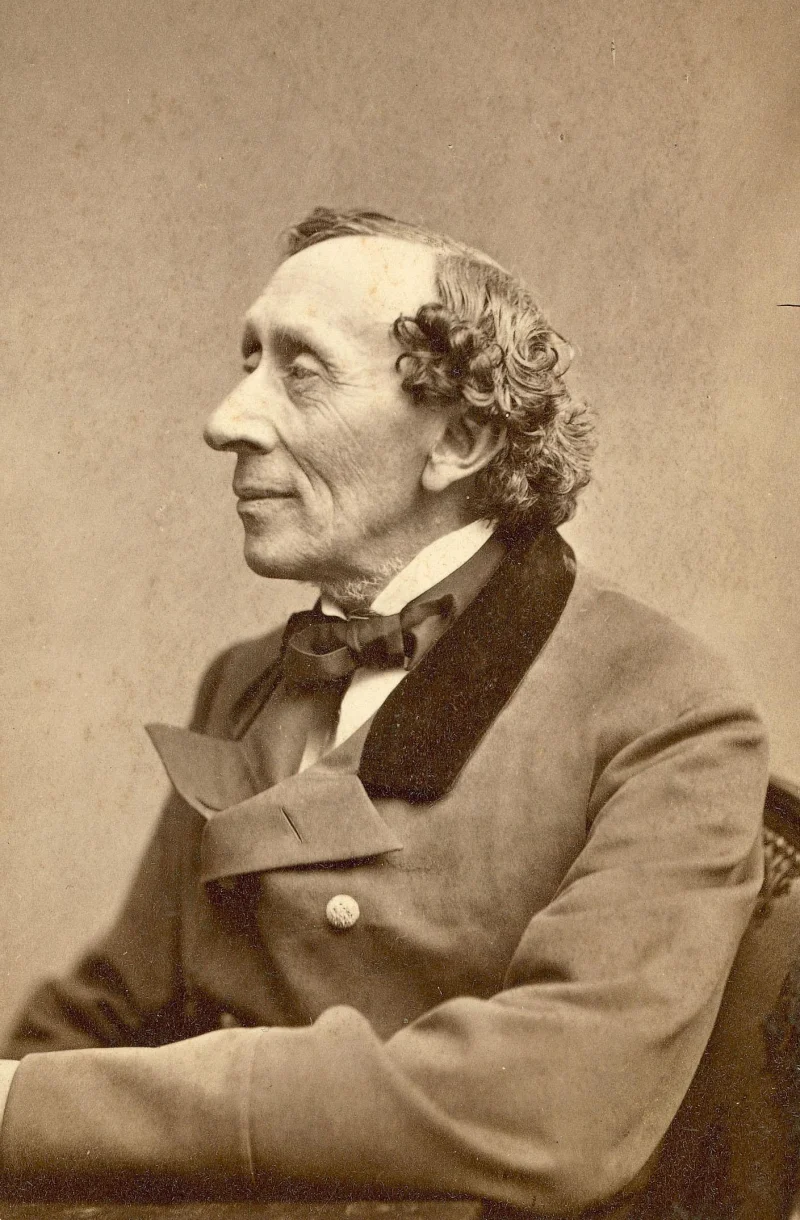Short Summary
Langston Hughes was a prominent American poet, social activist, novelist, playwright, and columnist known for his insightful, vibrant portrayals of Black life in America from the twenties through the sixties. A leading figure of the Harlem Renaissance, Hughes' work celebrated African American culture and addressed issues of race and social justice. He was famous for his innovative use of jazz rhythms and dialects to depict the lives of urban Black people, which earned him a significant place in American literature and cultural history.
Early Life & Education
Langston Hughes was born on February 1, 1902, in Joplin, Missouri, to parents James Nathaniel Hughes and Carrie Langston Hughes. His parents separated shortly after his birth, and he spent much of his childhood living with his grandmother in Lawrence, Kansas. This period was influential in shaping his understanding of African American cultural heritage and identity. After his grandmother's death, Hughes moved to Lincoln, Illinois, to live with his mother and stepfather. He attended Central High School in Cleveland, Ohio, where he began writing poetry. Later, he briefly attended Columbia University in New York City, where he was introduced to the vibrant cultural scene that influenced his early work.
Career Highlights
Langston Hughes' career took off in the 1920s, coinciding with the Harlem Renaissance. His first published poem, "The Negro Speaks of Rivers," appeared in 1921 and was highly acclaimed. In 1926, he published his first book of poetry, "The Weary Blues," which established him as a leading voice in the literary world. Hughes was not only a prolific poet but also wrote novels, short stories, plays, and essays. His work often explored themes of racial identity, social justice, and the everyday experiences of African Americans. He also wrote columns for newspapers, where he introduced the character Jesse B. Semple, a humorous, wise, and observant Black man who became a popular fixture in his writing.
Major Achievements
- Published "The Weary Blues" in 1926, which became a seminal work of the Harlem Renaissance.
- Won the Harmon Gold Medal for Literature in 1930 for his novel "Not Without Laughter."
- Co-founded the Harlem Suitcase Theatre in 1938, fostering Black theatrical talent.
- Received the Spingarn Medal from the NAACP in 1960 for outstanding achievement by an African American.
- Inducted into the National Institute of Arts and Letters in 1961, recognizing his contributions to American literature.
Famous Quotes
- "Hold fast to dreams, for if dreams die, life is a broken-winged bird that cannot fly."
- "I, too, am America."
- "An artist must be free to choose what he does, certainly, but he must also never be afraid to do what he might choose."
Interesting Facts
- Langston Hughes traveled extensively, visiting countries such as Mexico, Cuba, and the Soviet Union.
- He was one of the first writers to use jazz rhythms and dialect in his poetry, creating a unique and accessible style.
- Hughes wrote the lyrics for the Broadway musical "Street Scene," which won a Pulitzer Prize for Drama in 1947.
- His ashes are interred beneath the entrance of the Arthur Schomburg Center for Research in Black Culture in Harlem, New York.
- Hughes had a deep interest in socialism and wrote for various leftist publications during the 1930s.
Legacy / Influence
Langston Hughes' legacy endures as a pivotal figure in American literature and the Harlem Renaissance. His work continues to inspire and influence writers, poets, and artists by highlighting the beauty and complexity of African American culture. Hughes' ability to blend artistic expression with social commentary has left a lasting impact on the literary world, making his voice relevant and resonant in discussions of race, identity, and justice.
FAQ
Q: Why is Langston Hughes famous?
A: He is famous for his contributions to poetry, his role in the Harlem Renaissance, and his work highlighting African American culture and social issues.
Q: What was Langston Hughes' writing style?
A: His writing style was characterized by the use of jazz rhythms, vernacular language, and a focus on the experiences of Black Americans.
Q: What are some notable works by Langston Hughes?
A: Some notable works include "The Weary Blues," "The Negro Speaks of Rivers," and "Not Without Laughter."
Q: When did Langston Hughes die?
A: He died on May 22, 1967, in New York City.









